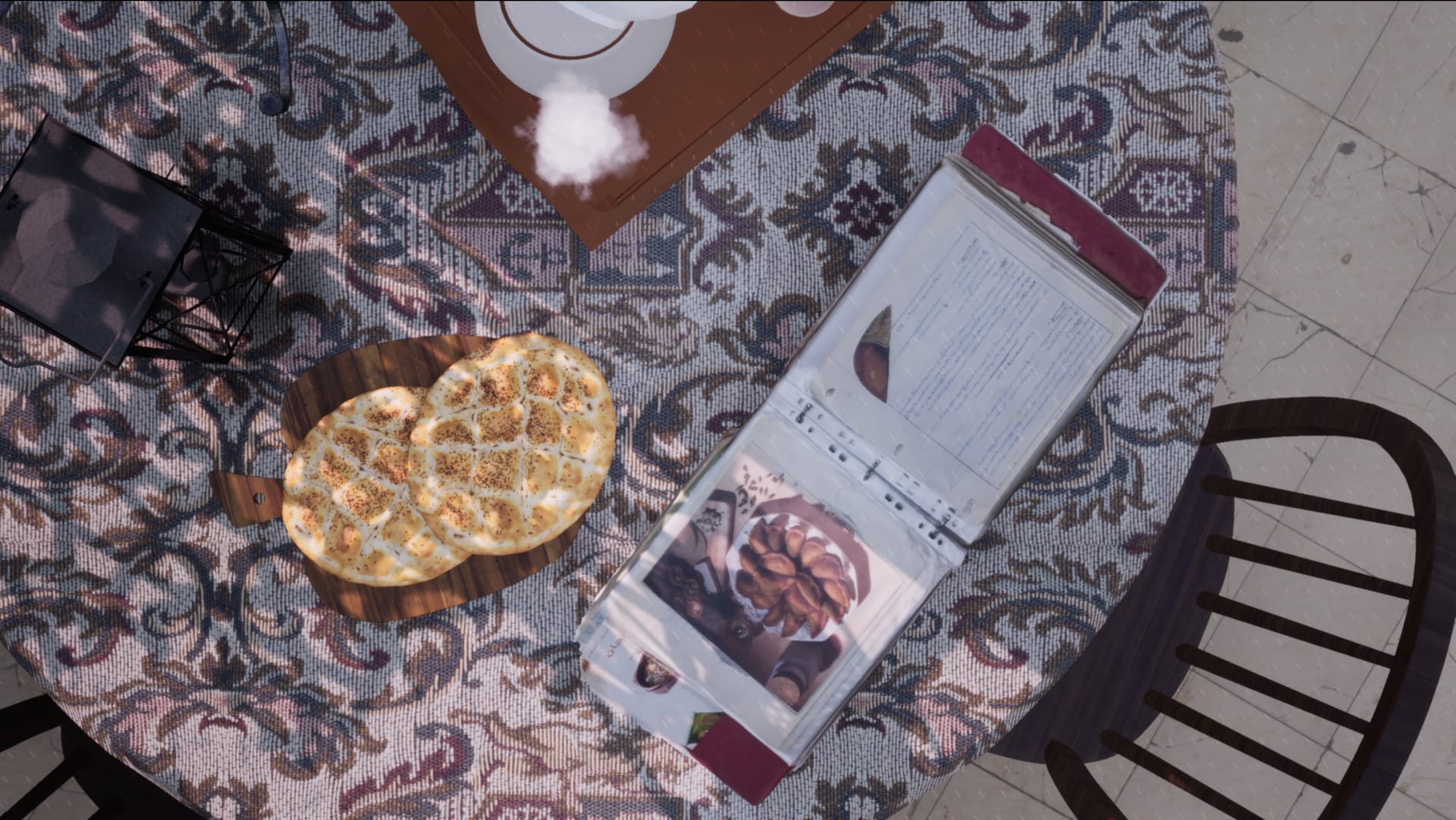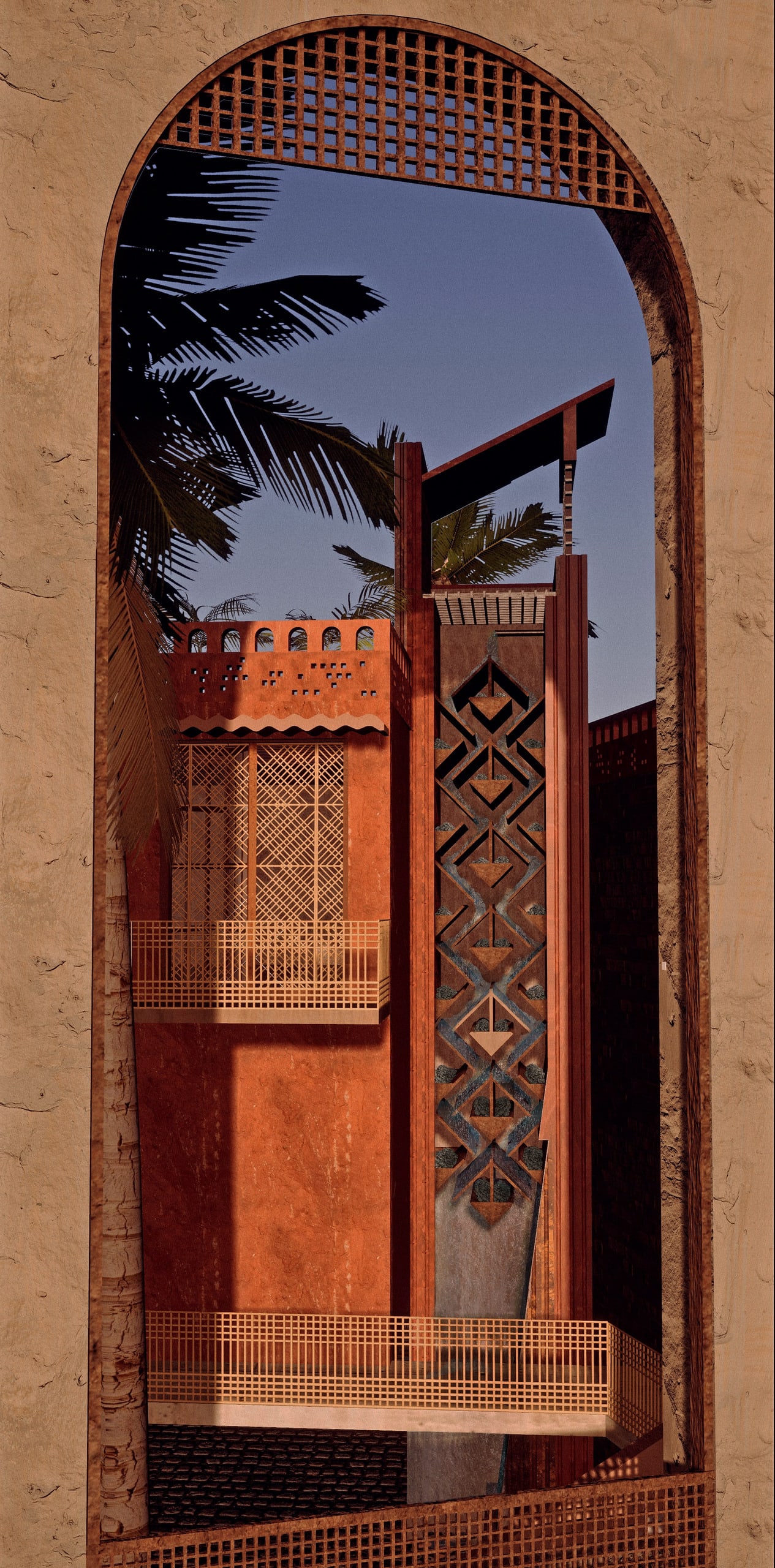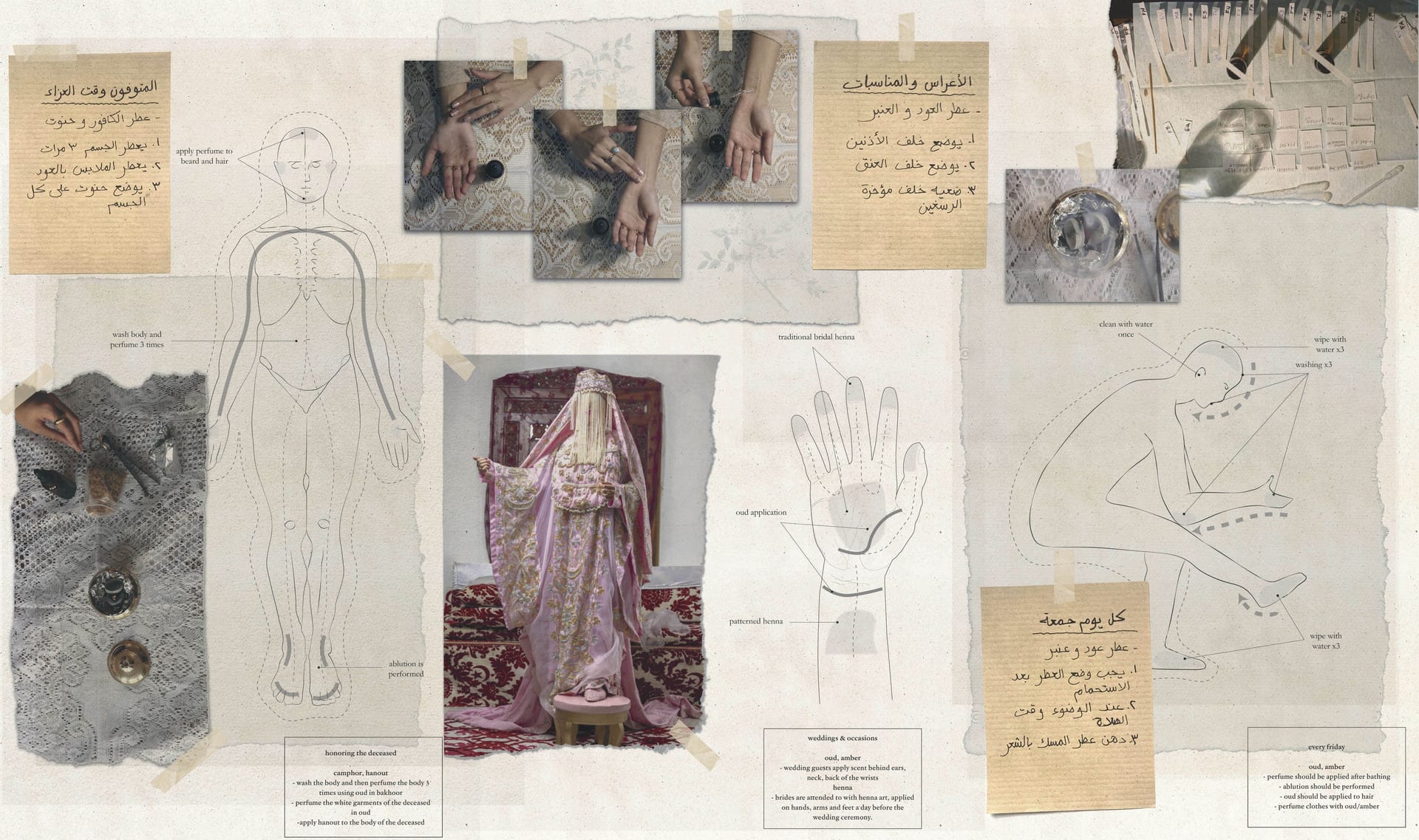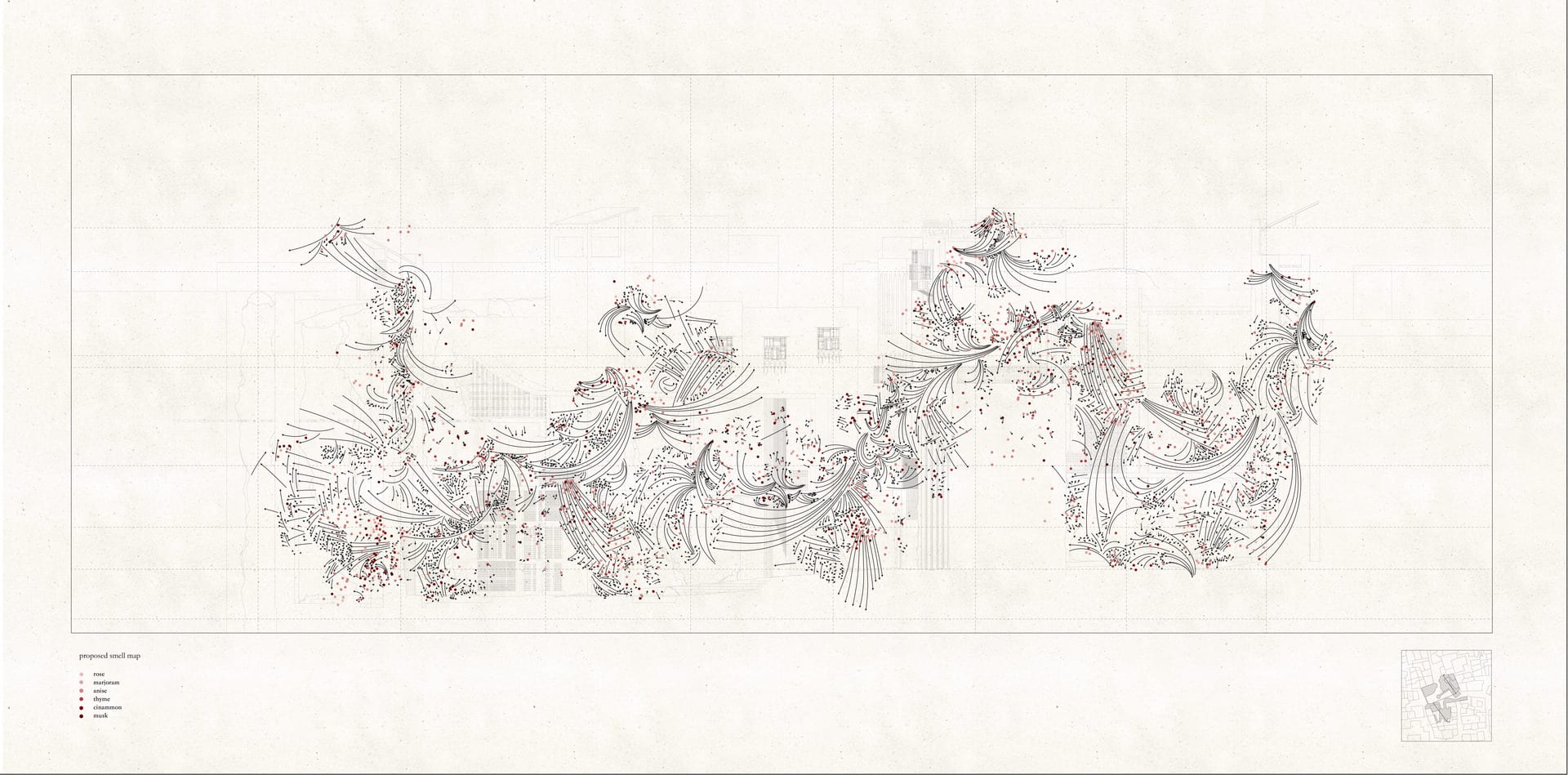Leen is an architectural designer from Jeddah, Saudi Arabia, who is currently based in London. Her upbringing in Jeddah has underpinned her interests in the physical and virtual representation of Arab culture and built environment, and the complexities of decolonising those depictions. Her current project is based in Al Balad, Saudi Arabia, where she is exploring the role of scent and fragrance in Hejazi culture, through looking at local fragrance production techniques and cultural rituals.
Leen received her bachelors in Architecture from The University of Westminster, and continued to work as an architectural assistant and freelance designer. Her recent published work includes drawings for ’Three British Mosques’ at the 2021 Venice Architecture Biennale by Shahed Saleem, and mentioned in The Journal of Civil Architecture. Currently, Leen is a commissioned artist at ’Staple: What’s on Your Plate’ at Hayy Jameel in Jeddah Saudi Arabia, where she exhibits her first year ADS3 studio project ‘Desert’s Don’t Bloom’.













